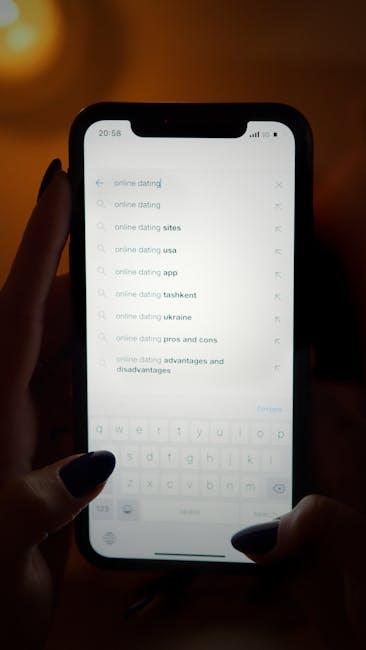In the age of swipes and matches, dating apps have transformed the landscape of romance, turning digital interactions into real-world connections. Yet, beneath the surface of this modern matchmaking lies a complex web of data collection and privacy concerns. Are these platforms acting as responsible custodians of personal information, or are they exploiting user data in the quest for profit? This article delves into the intricate dynamics of data usage within dating apps, exploring the balance between innovation and privacy in the pursuit of love. Join us as we navigate the digital heart, seeking clarity in the algorithms that connect us.
Navigating Privacy in the Digital Dating World
In the intricate landscape of digital dating, the handling of personal data by dating apps often raises eyebrows. On one hand, these platforms collect data to tailor user experiences, ensuring that potential matches are more aligned with personal preferences. However, the fine line between personalization and exploitation is frequently blurred. While some apps emphasize transparency, providing clear privacy policies and options to manage data, others are more opaque, leading users to question how much of their information is being shared or sold.
Consider the following aspects when evaluating a dating app’s data practices:
- Data Collection: Are users informed about what data is collected and why?
- Third-Party Sharing: Does the app share data with advertisers or other third parties?
- Security Measures: What steps are taken to protect user information from breaches?
- User Control: Can users easily manage their privacy settings and data preferences?
By staying informed and proactive, users can better navigate the complex terrain of privacy in the digital dating world, ensuring their personal data is handled with care and respect.

Unmasking the Data Dilemma: Transparency and Trust
In the realm of dating apps, the balance between transparency and trust remains a delicate dance. Users willingly share personal details in hopes of finding meaningful connections, but the question looms: are these platforms safeguarding this data or leveraging it for profit? Transparency is touted as a key principle, yet many users find themselves navigating a labyrinth of complex privacy policies.
- Is consent truly informed?
- How much data is being collected?
- What third parties have access?
Trust hinges on clear answers to these queries. While some apps take strides towards openness, others leave users in the dark, fostering suspicion. As digital cupids continue to evolve, the ethical handling of data will undoubtedly shape user loyalty and confidence.

The Fine Line Between Personalization and Privacy Invasion
In the quest to craft the perfect match, dating apps often tread a delicate path. Users appreciate the tailored experience that comes with data-driven algorithms, yet concerns about privacy loom large. The challenge lies in balancing the personalization that enhances user engagement with the need to protect sensitive information. Apps collect a plethora of data, including:
- Location: Proximity-based matching requires access to your whereabouts.
- Preferences: Details about your ideal partner shape your match suggestions.
- Behavioral Data: Interaction patterns are analyzed to improve user experience.
While these elements can significantly enhance the matchmaking process, they also open the door to potential misuse. Users are often left questioning whether their data is being used responsibly or if it’s being exploited for profit. The key lies in transparency and control—users should be informed about what data is collected and how it is used, while also being given the power to manage their privacy settings effectively.

Empowering Users: Steps Towards Safer Data Practices
To empower users and foster trust, dating apps must prioritize transparent and ethical data practices. Here are key steps towards ensuring safer data usage:
- Transparency: Clearly communicate how user data is collected, used, and shared. Utilize concise privacy policies that are easy to understand.
- User Control: Offer robust settings that allow users to manage their data preferences, including options to opt-out of data sharing.
- Data Minimization: Collect only the data necessary for app functionality, avoiding excessive or irrelevant information.
- Regular Audits: Conduct frequent audits to identify and address potential data vulnerabilities, ensuring compliance with the latest privacy standards.
By implementing these practices, dating apps can build a safer environment where users feel confident and protected.



